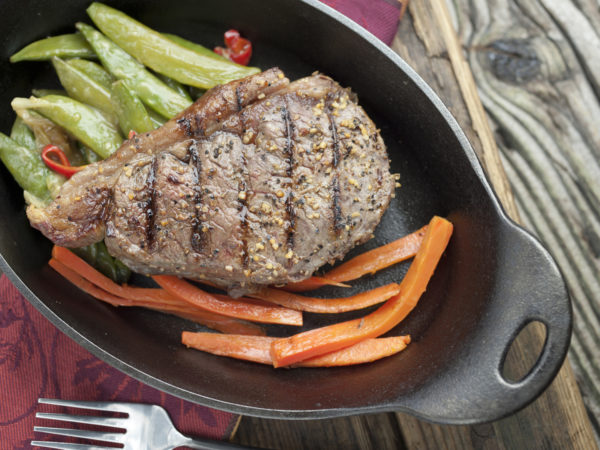Which Ground Meat Should I Eat?
I know you don’t eat meat, but for those of us who do, what do you view as the best ground meat to eat? Beef, turkey, pork, or bison?
Andrew Weil, M.D. | October 25, 2013

Human beings don’t need to eat meat to be healthy. We can get all our protein and essential fatty acids from other sources, such as wild-caught, cold-water fish; free-range, omega-3 rich eggs; and tofu, beans and nuts. However, if you do eat red meat, I think less is better than more and that you’re much better off getting it from grass-fed, grass-finished cattle than from those raised on factory farms and fed grain (not to mention hormones and antibiotics). Grass-fed, grass-finished beef offers a far better omega-3 to omega-6 fatty acid profile, as well as vitamin E and conjugated linoleic acid – all good for human health. Organic beef isn’t necessarily grass-finished. These cattle may be raised in pesticide-free pastures, but most of them are taken to feedlots and fed (organic) grain prior to slaughter.
Bison is a good, leaner alternative to beef. According to the Academy of Nutrition and Dietetics (formerly the American Dietetic Association), a three-ounce grass-fed bison burger has 124 calories and six grams of total fat. (A three-ounce lean hamburger has 182 calories, 85 of them – nine grams – from fat.) Bison meat is also relatively low in cholesterol (47 mg), is an excellent source of vitamin B12 and a good source of iron. Here, too, I recommend a grass-fed, grass-finished product. This meat is slightly lower in total fat, cholesterol and calories than meat from animals raised on grain. It is also higher in polyunsaturated fat and omega-3 fatty acids. Bison are not given antibiotics or growth hormones.
Ground turkey should be a healthy alternative to beef, but results of a Consumer Reports investigation published in June 2013 might sour you on this choice. The magazine reported that “more than half the packages of raw ground [turkey] meat and patties [bought at retail stores nationwide] tested positive for fecal bacteria. Some samples harbored other germs, including salmonella and staphylococcus aureus, two of the leading causes of foodborne illness in the U.S. Overall, 90 percent of the samples had one or more of the five bacteria for which we tested.” In addition, the magazine reported that almost all of the disease-causing organisms in the 257 samples “proved resistant to one or more of the antibiotics commonly used to fight them.”
Sadly, the Consumer Reports investigation also found that “ground turkey labeled ‘no antibiotics,’ ‘organic,’ or ‘raised without antibiotics’ was as likely to harbor bacteria as products without those claims.” The article explained that “even meat from organic birds can pick up bacteria during slaughter or processing. The good news is that bacteria on those [organic] products were much less likely to be antibiotic-resistant superbugs.”
In January, 2013, Consumer Reports found that pork chops and ground-pork samples from around the U.S. contained Yersinia enterocolitica, a bacterium that can cause fever, diarrhea, and abdominal pain. Some samples harbored other potentially harmful bacteria, including salmonella. The magazine also reported that some of the bacteria found in 198 samples “proved to be resistant to antibiotics commonly used to treat people. The frequent use of low-dose antibiotics in pork farming may be accelerating the growth of drug-resistant ‘superbugs’ that threaten human health.”
About one-fifth of the 240 pork products Consumer Reports analyzed in a separate test harbored low levels of ractopamine, a drug commonly approved for use in pigs raised for food in the U.S. but banned in the European Union, China, and Taiwan.
Given these findings, I would say that ground bison is your best bet.
Andrew Weil, M.D.









